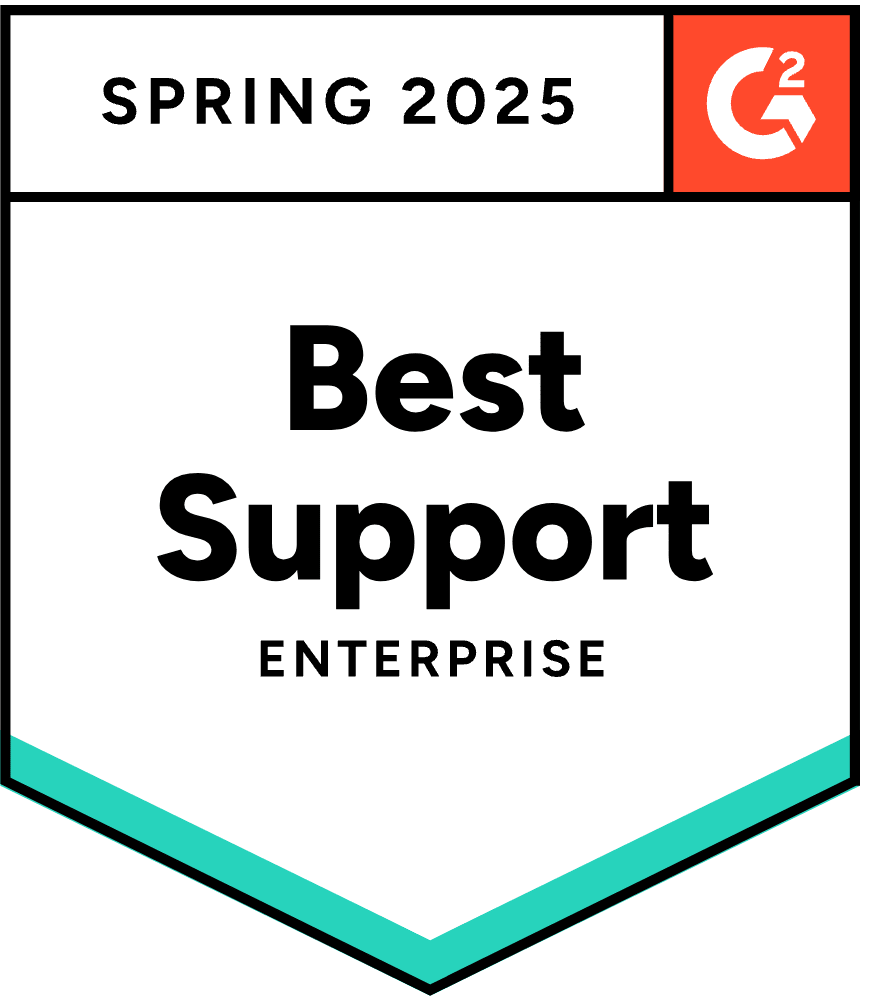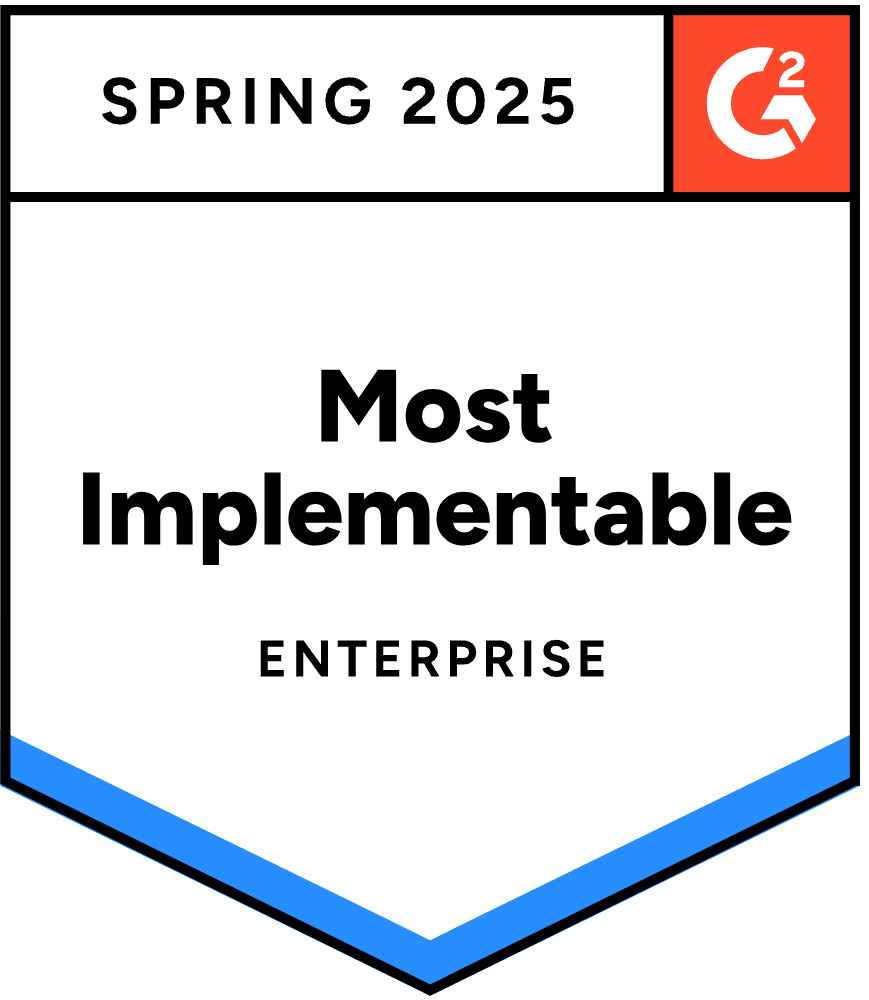What is Sales Training and Why is it Important?
Anna Spooner | WorkRamp Contributor
View bioLearning Tips Straight to Your Inbox
You can’t afford to ignore the power of effective sales training.
Sure, you hire experienced sales professionals. But that doesn’t mean they don’t need training.
Regardless of professional experience, you want to train all new hires. Every dollar invested in sales training will bring back $4.53, a remarkable 353 percent ROI. At the same time, 40 percent of new employees who receive poor job training will leave their positions within the first year.
A sales training program allows you to reinforce existing sales skills, teach reps about your specific market, product, and sales process, and help new hires get acclimated. Best of all, an excellent onboarding process can lower sales ramp time by as much as two months.
The sales enablement team is often responsible for creating and implementing high-quality sales training. Maximize your sales training for better results with these strategies.
In this post:
What is sales training?
Sales training is a phrase that encompasses many different processes.
First, and perhaps most apparent, sales training happens when a new sales rep joins your team. They must learn the necessary skills to sell your product or service to ideal customers.
Unfortunately, as Business 2 Community reported, 80 percent of what you teach new reps is forgotten within 90 days. That’s why it’s important to have other types of sales training to reinforce the skills reps need to succeed.
Ongoing reinforcement training
While people forget training quickly if they only receive it once, you can increase retention if you reinforce training regularly. For example, Business 2 Community found that three reminders within 30 days dramatically increased retention.
If you don’t have a process for consistent follow-up, your efforts likely won’t have the impact you’re hoping for. Ensure you aren’t focusing so much on new hire training that you overlook the importance of keeping your tenured reps sharp.
Coaching
No one is perfect, and everyone has unique strengths and weaknesses. When it comes to sales, each rep needs to receive coaching and additional training in areas where they struggle.
Coaching is one type of training, and the rep’s direct manager often organizes it. However, another type of training is when the sales enablement team helps the managers become great coaches.
The CSO Insights 2019 Sales Enablement Report found that almost 63 percent of organizations either have a random approach to coaching, where managers decide how to address concerns, or an informal one, where there are guidelines without formal implementation.
However, in those organizations where sales coaching was aligned with enablement resources, win rates were significantly higher than in companies with a random or informal approach.
Effective coaching can increase win rates by 30 percent, so the sales enablement team must create a coaching process that makes it easy for managers to identify and address sales performance.
“Most managers are just told to go and coach their teams, without any kind of guidance, training, or best practices on how to coach,” according to Stephanie Middaugh, Director of Enablement at WorkRamp. “It’s like giving car keys to someone who has never driven. Define what coaching means at your organization and then help leaders sharpen their skills to fit the needs of your coaching culture. Investing in those skills will pay off tenfold when your reps begin improving significantly.”
Rolling out new sales processes
The market is constantly changing, so staying on top of the evolving customer journey is essential. Sometimes, this means updating the sales process to help increase sales and revenue.
When there’s a change to the sales process, the enablement team can create training materials that showcase the new go-to-market strategy and ensure that marketing and sales are aligned as they move forward.
This alignment, combined with an engaging training process, can help increase the adoption of new processes and ensure a consistent message to your target customers.
Read more: 13 Types of Sales Enablement Content Your Team Needs
Why is sales training important?
Simply, sales training is how you communicate the sales process to your teams.
The sales enablement team understands how the customer journey, sales cycle, marketing messages, and sales process work together to generate revenue. When you create sales training, you can communicate specific best practices and sales approaches and encourage adoption.
Sales training also helps set expectations for reps. A properly trained sales team cannot make the excuse that they didn’t know what to say, how to say it, or which ethical guidelines they need to follow.
Most importantly, excellent sales training can dramatically improve your reps’ success rate. If you want the sales enablement team to impact revenue, creating and implementing effective training is the way to go.
What are the types of sales training?
Depending on your organization, you might have multiple types of reps. Each group will approach the sales process differently, meaning you’ll need specific training for their specific role.
Inside sales
Inside sales reps use the phone, social media, and email to connect with potential customers. These employees may work remotely or be grouped into teams on an in-office sales floor.
In 2019, census data showed that nearly 46 percent of sales reps focused on inside sales.
Inside sales reps need to know effective strategies to turn leads into sales, including:
- Social selling
- Cold calling
- Email marketing
At one time, inside sales reps were focused in the office and could be trained effectively using in-person training classes. Post-COVID, that’s no longer the case. An intuitive all-in-one learning platform can make training accessible on demand for all types of sales training.
Field sales
Field sales is the complement to inside sales. These reps meet prospective customers in the field. This may mean attending conferences and trade shows and/or visiting potential customers at their offices.
The 2019 census data showed that pre-COVID, field sales representatives were the single largest group of sellers. However, that is unlikely to be the case now. Not only did COVID-19 shut down a lot of travel for over a year, but the entire experience caused businesses to reevaluate how they wanted to buy products.
Today, 92 percent of B2B buyers prefer virtual sales interactions, and sellers realize this approach can be just as effective as traditional field sales.
However, field sales are still important for many organizations.
Field sales reps need the following skills:
- Personal communication
- Scouting for leads/sales prospecting
- Overcoming objections/problem solving
Take advantage of sales training software to deliver remote, on-demand training focusing on specific skills. This can help you deliver more effective, bite-sized training at a lower cost than traditional in-person training
Service sales
Service sales refer to the ability of customer service representatives to give existing customers a great experience and upsell additional products and services. Service sales are essential for increasing a customer’s lifetime value, creating long-term loyalty, and generating referrals.
Service sales reps need the following skills to be successful:
- Customer service
- Consultative selling
- Persuasive storytelling
- Upselling
- Asking for referrals
Sales management
Sales management training focuses on creating effective leaders who are set up for success in engaging, coaching, and motivating their sales teams.
The CSO Insights 2019 report found that sales managers’ ability to engage, coach, and motivate is the biggest driver of sales rep engagement. A highly-engaged sales team will have lower turnover, higher win rates, and better quota attainment.
Unfortunately, many companies overlook sales managers when it comes to training. In fact, one Sales Management Association report found that 41 percent of companies in the survey had zero budget for sales manager training.
You can’t afford to leave your sales managers without direction. So ensure they are included in your training plan. You’ll not only have better managers, but you’ll also have more effective sales reps.
What are the benefits of sales training?
Sales training can benefit your sales team and organization as a whole by:
- Increasing win rates
- Lowering sales/customer turnover
- Hitting quotas
- Improving sales rep engagement
- Increasing customer retention
Well-trained sales reps can nurture leads more effectively and turn more of them into customers. They know how to provide the right materials at the right time during the customer journey and present your product or service as a helpful solution to solve the customer’s primary problem.
One example of a company that experienced significant benefits when it improved its sales training is Reddit.
Reddit’s Principal Program Manager on the Sales Enablement team, Ashley Crisostomo, was able to decrease ramp time by 33 percent by creating a stronger onboarding and new hire training process with WorkRamp.
Reddit also uses WorkRamp for impactful go-to-market training on new features, corporate messaging, and role-specific skills. Ashley said, “In particular, the sales team is focused on sharpening their negotiation skills and corporate pitch with WorkRamp Challenges. On our latest brand narrative pitch challenge, the average rep score was over 90 percent, which proves how effective WorkRamp is in training and certifying our teams.”
How can a learning management system (LMS) help with sales training?
The right learning platform can help you create flexible, easy-to-digest training modules that cater to multiple learning styles.
A learning platform can help you save time trying to schedule in-person training and allow reps to learn in the flow of work. In addition, you can assign training paths based on your team members’ needs.
WorkRamp is an All-in-One Learning Platform that can help you equip your sales team with on-demand training. With WorkRamp, you can customize learning paths and certification models for your customer-facing teams.
Learn more about how WorkRamp can help you empower your sales team and provide on-demand training to drive revenue performance and close more deals. Contact us for a free personalized demo.
Complete the form for a custom demo.
Recent Posts
- Why Secure LMS Platforms Are a Must for Regulated Industries July 10, 2025
- Top LMS Integrations That Power Smarter, Faster Learning July 2, 2025
- Introducing WorkRamp Analytics Studio: Unlocking Your Data Insights with AI June 30, 2025
- 11 AI LMS for AI-Powered Learning June 27, 2025
- The Best LMS Platforms for Customer Retention (2025 Guide) June 27, 2025
Anna Spooner
WorkRamp ContributorAnna Spooner is a digital strategist and marketer with over 11 years of experience. She writes content for various industries, including SaaS, medical and personal insurance, healthcare, education, marketing, and business. She enjoys the process of putting words around a company’s vision and is an expert at making complex ideas approachable and encouraging an audience to take action.
You might also like
Empower your sales team and maximize your revenue
Having practical, actionable strategies can help you improve sales quickly–and if implemented right away, you may see the difference this year.
Read More
3 essential sales enablement tools
Too many tools can be distracting for reps. Here are the enablement tools you really need to achieve sales goals.
Read More
How to find the right team members and resources to create a successful enablement program
Organizations with a dedicated sales enablement function have significantly better win rates, quota attainment, and customer retention. Learn how to build a successful enablement team.
Read More
Ready to Explore Online Learning Platforms?
Get in touch to learn how WorkRamp can help you achieve your training goals.
Request a Demo




